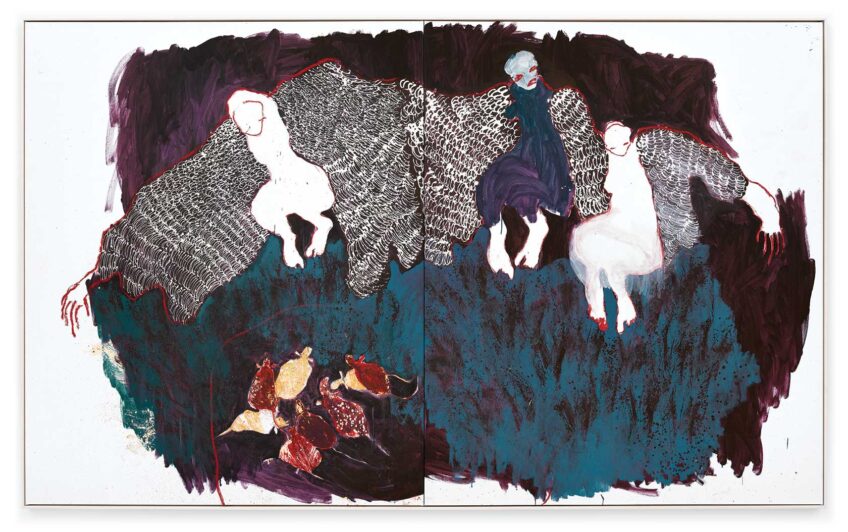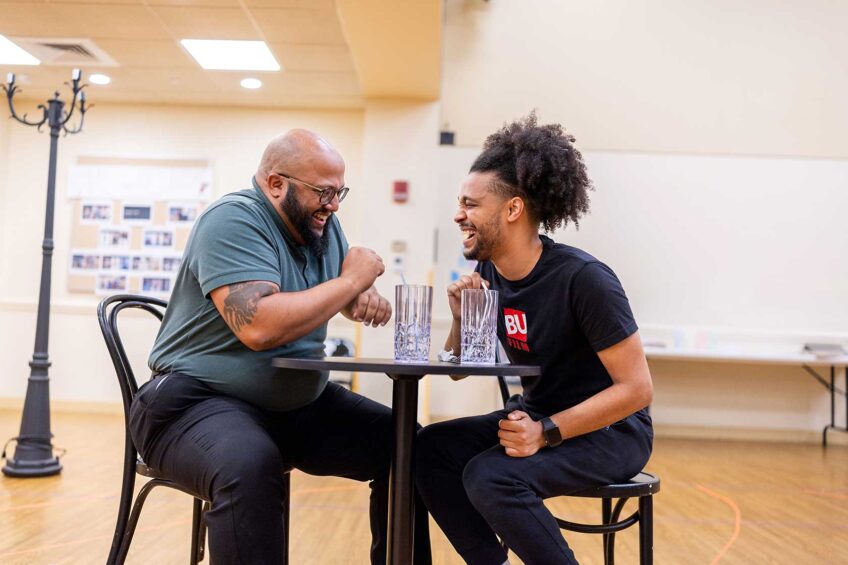In Bad Habit Productions’ “How Soft the Lining,” a small but powerful cast explores the relationship between Mary Todd Lincoln and Elizabeth Keckley, her dressmaker. In performance through November 20 at Calderwood Pavilion, Boston Center for the Arts, the show is both a celebration of feminine strength and friendship, and an examination of race relations during the time of slavery.
The timeline of the story begins after President Lincoln’s assassination and reveals flashbacks of Mary and Elizabeth’s childhoods and journeys to the White House. The women’s formative years are presented in tandem to show both the similarities and the differences between them. Though both women experienced loss and pain in childhood, Elizabeth was put to work as a slave from age 4, a much darker fate than Mary’s quarrels with her vindictive stepmother.
Elle Borders shines as Elizabeth Keckley, perfectly portraying her internal struggle between a desire for friendship and a history of oppression. Jade Guerra makes her Bad Habit Productions debut, appearing in a number of roles. She brings exceptional comic relief as Elizabeth’s well meaning but naïve shop assistant.
The primary conflict in the narrative is Elizabeth’s difficulty seeing Mary as a friend, after a lifetime of interacting with white people only in a master and slave capacity. Her heart wants to open up to the first lady, but her pride fears mistreatment. In one scene she says, “You shouldn’t owe your friend your supper.”
Gender identity is another key theme. Early on, Mary laments how much pressure is put on her appearance rather than her education, which she fought hard to acquire. She says, “Mr. Lincoln can wear the same black suit every day, but if I don’t look the part of a Washington hostess, they’ll be writing about it for weeks to come.” There are a handful of male roles in the show, portrayed as husbands and sons, but they serve only to support the women’s stories, a pleasant change from traditional media.
Sound plays an important role in “How Soft the Lining,” which includes sound effects such as the cracking of a whip and the tick of a typewriter to represent historical events and the passage of time. Contemporary Hip Hop beats and remixes of traditional songs like “Follow the Drinking Gourd” were played between scenes, linking the play’s material to the modern world, where race relations remain a hotly contested subject.
“How Soft the Lining” champions the ideas of perseverance in the face of oppression and the value of friendship on the long road of life. As Mary Todd Lincoln says, “Forward. That’s what women do best.”







